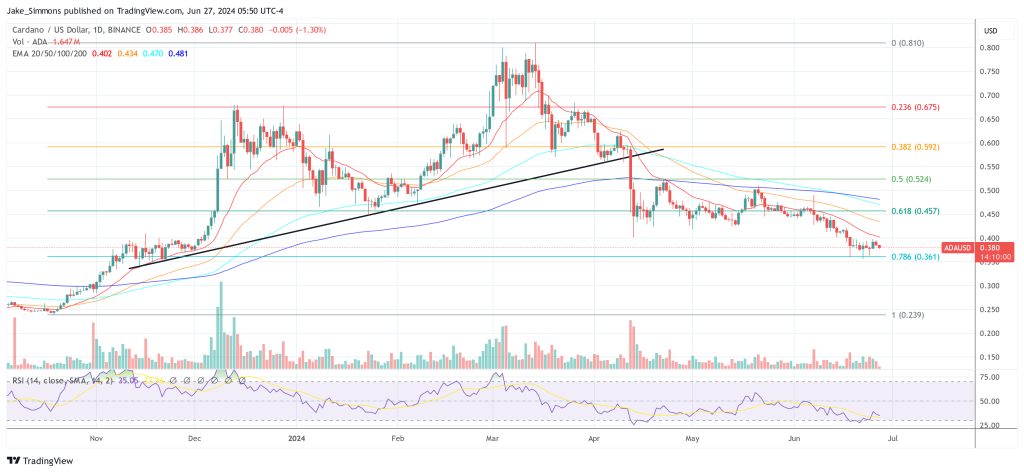The Cardano Foundation has outlined a detailed framework for governance reform coinciding with the forthcoming Chang hard fork. This strategic move signifies a major shift towards a decentralized governance structure within the blockchain ecosystem, intended to distribute decision-making power more equitably among its stakeholders.
The Cardano blockchain, known for its scientific approach to development and strong emphasis on security and sustainability, is preparing for one of its most significant updates yet—the Chang hard fork. This update is not just a technical upgrade but also a shift towards a decentralized governance model, a move that has been long anticipated by the ADA community.
Cardano Foundation Preps For Chang Hard Fork
According to the announcement made on the Cardano Forum by the Cardano Foundation, the transition involves the implementation of a governance model that includes delegate representatives (DReps), stake pool operators (SPOs), and a constitutional committee. This model is designed to ensure inclusivity, diversity, and a balance of power, which are critical for the long-term stability and integrity of decentralized networks.
During the bootstrapping phase between the Chang #1 and Chang #2 upgrades, governance actions will be restricted to parameter changes, hard fork initiations, and informational actions. This restricted phase is crucial for maintaining network stability and security while the governance structures are fully established.
The Cardano Foundation will serve as a member of the Interim Constitutional Committee (ICC) during this transitional phase. The ICC’s role is pivotal as it will have the authority to independently approve protocol parameter changes and, in conjunction with SPOs, initiate necessary hard forks. This committee will also interpret the Cardano Constitution, review governance actions, ensure transparency and fairness, and support the initial governance structures.
In the recent ICC elections, the Foundation exercised its voting rights through a substantial stake of 20 million ADA. The voting process was designed to select candidates who best represent the foundational principles of the new governance model. The candidates were assessed based on their commitment to the Cardano community, adherence to constitutional principles, transparency, and technical expertise in blockchain technology.
The top-ranked candidates included the Cardano Atlantic Council, Eastern Cardano Council, and individuals such as Lloyd Duhon and Johnny Kelly, reflecting a diverse group likely to represent various interests within the ecosystem effectively.
The Foundation has emphasized transparency throughout the electoral process, enabling stakeholders to track voting and fund allocation through platforms like pool.pm. This transparency is part of a broader commitment to building trust and ensuring that the governance transition is conducted openly and fairly.
At press time, ADA saw a noticeable fluctuation in its market value, dropping by over -2.7% in the past 24 hours and more than -3% over the past week. The current trading price is approximately $0.378, with trading volumes (+13% in the last 24 hours) suggesting increased activity and interest from traders.




